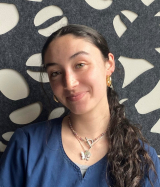Improving AYA-Clinician Communication in Sexual and Reproductive Health

Mentor Name: Natasha Frederick
Adolescent and young adult cancer patients (AYAs) consistently report the need for improved patient-clinician communication on sexual and reproductive health (SRH).(1-4) Unfortunately, oncology clinicians often underestimate the relevance of psychosexual issues among AYAs and rarely include SRH conversations throughout disease treatment and survivorship.(5, 6) Most all AYA SRH research has focused on fertility and fertility preservation (2, 7-9), leaving vast knowledge gaps on optimal SRH patient-clinician communication, clinical assessment, education, and intervention on the remaining SRH issues encountered by the AYA cancer population. Research by our team shows that key clinician-identified barriers to SRH communication with AYAs include lack of knowledge about and experience with SRH issues faced by AYAs, insufficient patient and family-directed educational resources, and clinician discomfort in discussing SRH.(10, 11) Furthermore, research by our team shows that AYAs want to discuss relevant SRH issues with clinicians but are hesitant to initiate such conversations.(4) While we now have a better understanding of the barriers to these conversations, the literature lacks sufficient evidence-based interventions to improve SRH communication in AYA populations. In a survey of >600 pediatric oncology clinicians, we found that 63% of respondents identified interactive skills-based education modules as a preferred learning strategy, second only to published guidelines (65%).(11) Survey results also highlighted a specific need for clinician education on how cancer treatment may affect sexual dysfunction and how these issues may be addressed.
Our research group initially developed three interactive modules to promote clinician education on SRH for the AYA cancer patient. Based on the survey data above and feedback from the modules developed to date, there is an expressed need for an additional module on sexual dysfunction. The goal of the proposed project is to develop an interactive clinician education module focused on issues of sexual dysfunction for the AYA cancer patient, conduct cognitive interviews with oncology clinicians to elicit clinician feedback, and to assess acceptability and perceived value in improving clinician knowledge of the sexual dysfunction and how to discuss sexual dysfunction with AYA cancer patients.

